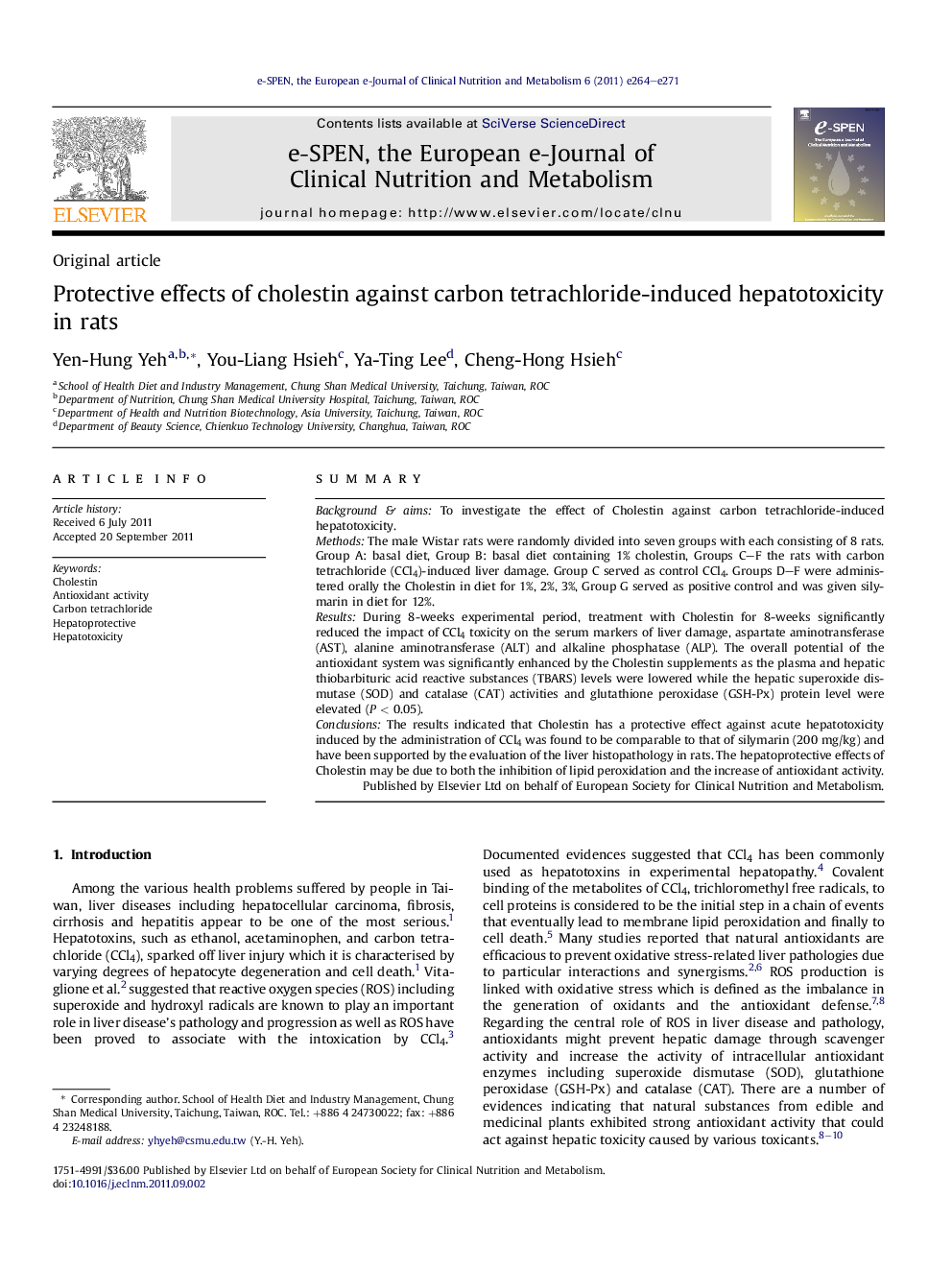| Article ID | Journal | Published Year | Pages | File Type |
|---|---|---|---|---|
| 2685340 | e-SPEN, the European e-Journal of Clinical Nutrition and Metabolism | 2011 | 8 Pages |
SummaryBackground & aimsTo investigate the effect of Cholestin against carbon tetrachloride-induced hepatotoxicity.MethodsThe male Wistar rats were randomly divided into seven groups with each consisting of 8 rats. Group A: basal diet, Group B: basal diet containing 1% cholestin, Groups C–F the rats with carbon tetrachloride (CCl4)-induced liver damage. Group C served as control CCl4. Groups D–F were administered orally the Cholestin in diet for 1%, 2%, 3%, Group G served as positive control and was given silymarin in diet for 12%.ResultsDuring 8-weeks experimental period, treatment with Cholestin for 8-weeks significantly reduced the impact of CCl4 toxicity on the serum markers of liver damage, aspartate aminotransferase (AST), alanine aminotransferase (ALT) and alkaline phosphatase (ALP). The overall potential of the antioxidant system was significantly enhanced by the Cholestin supplements as the plasma and hepatic thiobarbituric acid reactive substances (TBARS) levels were lowered while the hepatic superoxide dismutase (SOD) and catalase (CAT) activities and glutathione peroxidase (GSH-Px) protein level were elevated (P < 0.05).ConclusionsThe results indicated that Cholestin has a protective effect against acute hepatotoxicity induced by the administration of CCl4 was found to be comparable to that of silymarin (200 mg/kg) and have been supported by the evaluation of the liver histopathology in rats. The hepatoprotective effects of Cholestin may be due to both the inhibition of lipid peroxidation and the increase of antioxidant activity.
